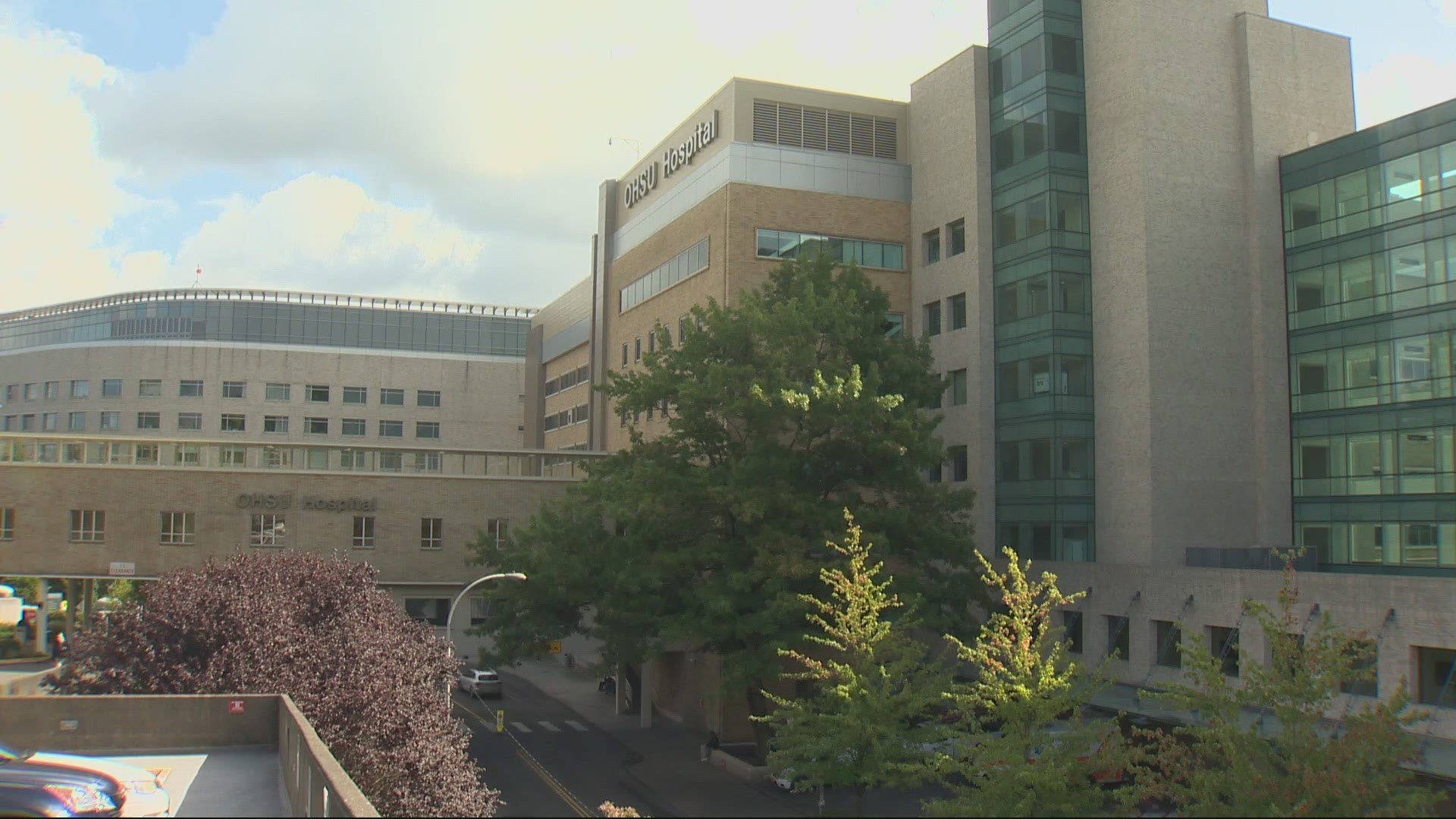PORTLAND, Ore. — Millions of Americans survive COVID-19, but lingering symptoms can stay with them for months.
At Oregon Health & Science University (OHSU), there's a new program to try to treat patients considered long-haulers. It's one of dozens that has opened, or will be opening, in the U.S., as reported by NBC News.
So far, it's the only specialized post-COVID clinic we know of in the state of Oregon. OHSU is finalizing its Long COVID-19 Program, which it hopes to launch in about a month. It's a specialized, coordinated approach to care for Oregonians dealing with an illness that doesn't have a known cure, now labeled Post-Acute Sequelae of SARS-CoV-2 infection (PASC).
Many of the "long COVID" symptoms Kristin Sanders has endured the past seven months aren't anything new to to her. She suffers from fibromyalgia, a condition that causes pain all over the body.
The symptoms that are new scare her: constant rash, loss of hair, burning and peeling skin, smelling an odd stench, loss of circulation and more.
Sanders is among millions who haven't fully recovered from COVID-19. Many deal with similar symptoms, including those who were previously healthy and active. All spend months looking for validation, help and answers from the medical community and others experiencing lingering, life-changing symptoms.
"When you've got this, many people still suffering, it needs to be a wake-up call," Sanders said. "We're like the canaries in the coal mine. We're dying, or we're living a death experience in a way."
Sanders is both excited and skeptical about OHSU launching a new post-COVID-19 program to help treat long-haulers like her.
"I'm hoping that they are really open to patient feedback and not just sticking with the usual: 'this is our framework,'" Sanders added.
Dr. Eric Herman, lead physician of OHSU's new Long COVID-19 program, says they created a thoughtful, comprehensive and patient-centered program based on the best evidence out there. The institution collaborated with other post-COVID clinics around the country.
"Patients are reaching out to us saying, 'please help, we have unmet needs,'" Dr. Herman told KGW. "In some cases, that's the best medicine, is just people to feel listened to."
The program is just for OHSU patients to start. Primary care doctors with OHSU can refer their patients or people can call the program's new hotline that's currently being set up.
The program will create individualized care plans and direct patients to the right resources and specialists.
"Every patient is unique and has their own fingerprint to this, their own sort of spectrum of illness," Dr. Herman added.
Long-haulers can see providers in-person at different clinics around OHSU's Southwest Portland campuses or virtually through telehealth visits.
"What we're hoping to do is organize that and coordinate that for patients so they get fully assessed, so all the different needs and services they have we can address that at one time by a group of clinicians versed at all the different complications," Herman said.
Researchers and clinicians are learning from other similar conditions like chronic fatigue syndrome, post-intensive care syndrome and fibromyalgia, the disease Sanders has. But Dr. Herman says providers need to be transparent about not knowing all the answers.
"In a lot of ways, it's about a trusted partnership and being open and honest with patients and skillful about what we are able to provide and have caring discussions and follow up," Herman added.
Sanders, an OHSU patient, plans to look into the program.
"It's giving long-haulers the first bit of hope that they've had and also that finally somebody's paying attention, that maybe they won't have to live the rest of their life like this, that they'll be able to get their life back. And I sure hope that's true," Sanders said.
People began experiencing long-term COVID symptoms in the spring last year, but Dr. Herman says they didn't launch the program earlier for a variety of reasons.
He says the medical community still had a lot to learn about the new disease and didn't want to start something that wasn't sustainable long-term. It also took time to get it all organized, including starting a hotline and making sure providers could fit these new, complex patients into their schedules.
RELATED: COVID-19: The Long Haul

